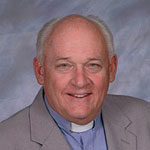
Last Month, Christopher Cleary from Colorado went on Facebook and threatened to kill “as many girls as I see” because he was still a virgin at 27. Police feared he might be targeting a nearby Women’s March. They arrested him after he wrote a long verbal attack against women blaming them for his virginity and wanting to become “the next mass shooter.”
Cleary is part of a group of murderous young men who call themselves “involuntarily celibate” or “incels” for short. They have recently used their status as a single person to launce deadly attacks on women.
The tragic death of 10 innocent lives in Toronto is a reminder of the hate and anger stemming from within this fringe group. Alek Minassian, 25, intentionally struck many people on a busy Toronto street with a rented van and was charged with 10 counts of murder and 13 counts of attempted murder.
Another recent incel example is Elliot Rodger who went on a killing rampage in 2014 near his campus of UC Santa Barbara after having written manifesto seeking “vengeance against attractive women” for denying him sex and affection. He killed six people before shooting himself.
In 2015, Chris Harper-Mercer shot and killed nine people at a community college in Oregon before taking his own life. He was a self-described incel saying, “Here I am, 26, with no friends, no job, no girlfriend.”
It’s easy to dismiss these incels as losers. Yet, I think these examples say more about our society and our attitude toward woman and human sexuality. What I hear these people are saying is that the role of women is to satisfy the sexual cravings of men. It is very similar attitude to the people accused in the #metoo movement who used or tried to use their position in life to force women to have sex with them.
The cultural message found on TV, movies, and music is that sexual pleasure is the right of everyone, including teenagers. No one should be deprived of this pleasure. If the purpose and goal of sex are primarily pleasure, then other people are just objects to be used for bodily gratification.
Let’s face it. Everyone wants to love and be loved. That’s what defines us as human beings. God has put this desire in the human heart along with a desire to be intimate with another human being. Yes, God created sex. The Greeks called this deep desire of the human heart Eros.
A man’s body doesn’t make sense by itself, nor does a woman’s. Seen in light of each other, we discover an unmistakable call to be a “gift” to one another – a gift so real that it leads to another person! Selfish sexual desire often called lust, aims not at self-giving, but at self-gratification. Chaste sexual desire, however, refuses to use our own or other people’s bodies as objects for personal gratification. Christian sexuality should never become recreational.
The idea of dating is not to see whether we will enjoy become sexual active but to find someone with whom we are willing to spend the rest of lives. Building a strong lasting relationship with the right person is essential for our happiness.
Every human being struggles with strong sexual desires. When we recognize that all-powerful desire in our hearts, we need to discipline ourselves and deal honestly with that desire.
Like with any of our appetites, this demands conditioning and sacrifice. True chastity is not about suffocating the longing that dwells in our hearts, but about freeing it, so that it can reach its true height. It’s a discipline that is creative and liberating – like that of a musician who continually trains his body to make ever more beautiful music.
The Christian position of human sexuality is that sex is relational, with pleasure as the by-product. It is so powerful that it is only safe within a committed, covenant marriage relationship.


Be the first to comment